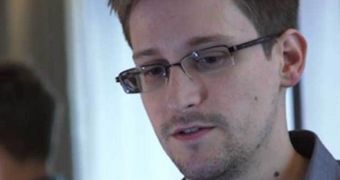One United Nations commissioner agrees with a big part of the world – Edward Snowden should be praised, not prosecuted.
According to Navi Pillay, UN High Commissioner for Human Rights, the world owes Edward Snowden a great deal, which is why he shouldn’t have to face trial for his actions since they served the public interest, Reuters reports.
“Those who disclose human rights violations should be protected: we need them,” Pillay said. “I see some of it here in the case of Snowden, because his revelations go to the core of what we are saying about the need for transparency, the need for consultation. We owe a great deal to him for revealing this kind of information,” she adds.
While the United Nations commissioner may be taking Snowden’s side, the United States of America has charged the whistleblower with theft of unauthorized communications of national defense information and willful communications of classified communications intelligence information to an unauthorized person under the Espionage Act. The word “treason” has been used quite often too, but there have been no such charges brought to his name.
Of course, that’s also because, according to the US laws, a traitor is someone who shares such documents with the country’s enemies, while Snowden shared the files with the American people.
“As a former judge I know that if he is facing judicial proceedings we should wait for that outcome,” she says, referring to the trial that Snowden is avoiding by remaining in Russia.
While calling him a human rights defender, Pillay mentions that she was making some points that could be raised on the whistleblower’s behalf so that the criminal proceedings be averted.
As for the government surveillance employed by the US government, Pillay says that forcing companies to hand over secret and unfettered access to private information stems from a grave lack of transparency.
While she may have referred to the United States, the statement also applies to the United Kingdom where a bill is currently being rushed through the Parliament. The new law would allow the government to force telcos to collect and store data on their clients, including the phone numbers they call, the texts and emails they send, as well as their browsing history.
The United Nations believes that mass surveillance is a growingly dangerous habit rather than an exceptional measure. The NSA scandal has revealed a lack of proper national legislation and enforcement, as well as procedural safeguards and ineffective oversight. Privacy is a human right and mass surveillance, the UN says, violates this right.

 14 DAY TRIAL //
14 DAY TRIAL //